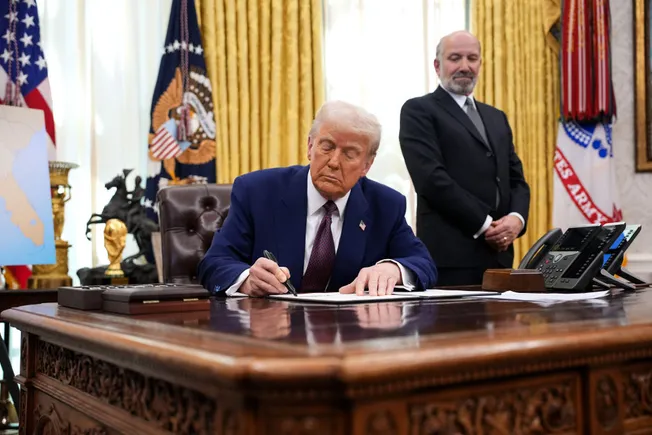Table of Contents
Recent developments in tariffs, including delays and retaliatory actions, have dominated headlines, creating challenges for food and beverage companies.
In March, a 20% tariff on Chinese goods took effect, while President Donald Trump imposed 25% tariffs on certain items from Canada and Mexico. The U.S. is also set to increase duties on steel and aluminum and implement reciprocal tariffs on countries worldwide.
While these tariffs may impact costs for manufacturers, many companies believe the effect on their bottom line will be manageable. Most are not planning significant price hikes due to ongoing consumer spending constraints.
However, the real concern lies in potential retaliatory actions from other countries, leading to boycotts of U.S. products. This has already affected companies like Brown-Forman, the owner of Jack Daniel’s, which views boycotts as more harmful than tariffs.
For businesses heavily involved in the agriculture sector, tariffs pose a more immediate challenge. Countries like Canada and China have already taken measures impacting imports of U.S. agricultural products.
The Campbell’s Company Prepares for Tariff Impact
CEO Mick Beekhuizen of Campbell’s expressed concerns about potential tariff impacts on packaging costs and the company’s soup brand. Campbell’s reliance on imports from Canada and exports to the country make it vulnerable to retaliatory tariffs.
The company is working with suppliers to address potential challenges and may adjust product prices based on tariff duration and extent.
Brown-Forman Anticipates Tariff Fallout
CEO Lawson Whiting of Brown-Forman highlighted the adverse effects of boycotts resulting from U.S. tariffs, especially in Canada. The company is bracing for potential tariff consequences in Europe, which could impact sales of American whiskey brands.
General Mills Downplays Tariff Impact
General Mills CEO Jeffrey Harmening stated that tariffs have minimal impact on the company due to its domestic sourcing. However, higher costs for Canadian goods could affect certain products, necessitating adjustments in packaging.
Coca-Cola Adapts to Tariff Challenges
CEO James Quincey of Coca-Cola acknowledged the cost implications of tariffs on soda cans but deemed them manageable. The company may explore sourcing changes, packaging adjustments, price increases, and a shift towards plastic bottles to mitigate the impact.
Mondelēz International Responds to Tariff Pressures
CEO Dirk Van de Put of Mondelēz International expects tariff effects on its cookie and cracker production. The company may resort to promotional strategies and marketing efforts to offset increased costs and maintain consumer demand.
Tyson Foods Strategizes Amid Tariff Uncertainty
Tyson Foods is preparing for potential retaliatory tariffs, particularly in its meat business. The company is developing contingency plans to navigate changes in trade dynamics and explore alternative markets for its products.

